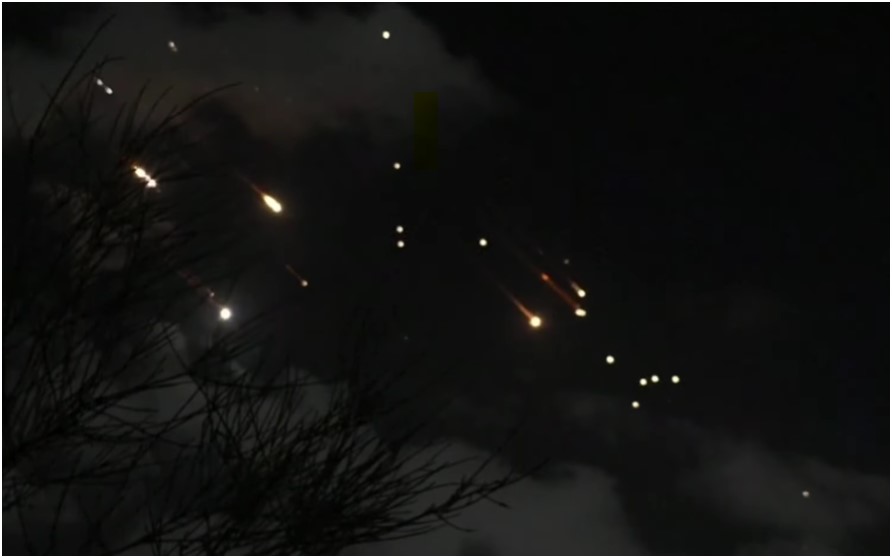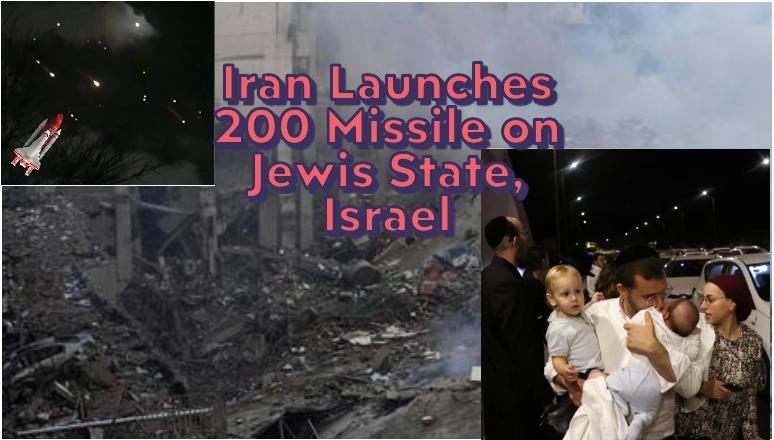Date: October 2, 2024: The Israeli-Iranian conflict reached a critical juncture with an extraordinary barrage of over 100 missiles targeting Israel from Iran on October 2, 2024, in direct retaliation for Israeli airstrikes. Now, the Middle East conflict has taken on a whole different dimension that could lead to further strife through the involvement of other nations and a wider regional war.
Israeli-Iranian Conflict: Attack on Israel is over as fears grow of wider conflict, Iran Said.
FACT
- The Hezbollah organization, meanwhile, issued a statement saying that it had confronted Israeli troops infiltrating the area near the village of Odaisseh in south Lebanon and inflicted losses upon them, forcing these troops to retreat.
- For Israel, what happened in the north was a “serious security incident,” as Israeli media framed it – at the moment when hospitals were getting ready to receive casualties as military helicopters were ferrying the wounded.
- Israeli officials pledged that retaliation would follow an Iranian barrage of ballistic missiles fired in the direction of major military and security centers in Israel. Iran claimed the airstrikes were in response to attacks on Gaza and Lebanon.
- Since October, Israeli bombing in Gaza killed at least 41,638 people and injured 96,460. In Israel, Hamas-led attacks on October 7 killed at least 1,139 and kidnapped over 200 others.
Background: A Year of Growing Tensions
The source of this new rise in hostilities dates back to the war that Israel embarked on, from 2023, with Hamas in Gaza. Over the past year, Israel has expanded its operation radius, highly pegged at a number of raids within Lebanon against a militant Iranian-backed group going by the name of Hezbollah. It reports upwards of 9,500 missile attacks from Hezbollah onto Israeli soil since October 2023.
All these military operations on the part of Israel’s military also targeted Iranian positions lately, which had been bombed besides killing of key Iranian military officials. All this set the stage for Iran’s retaliatory missile strike. Iran used medium-range ballistic missiles in Israel strike.
‘Iran made a big mistake tonight – and it will pay for it,’ Israeli Prime Minister,’ Benjamin Netanyahu.
Iran’s Missile Offensive Against Israel
On the night of 2 October, Iranian forces fired over 200 missiles at various points in Israel. Israeli defense sources declared that several incoming missiles were downed by the Iron Dome missile defense system and casualties and full damage remain unknown.
Iran announced that it had warned both Russia and the US in advance through diplomatic channels of the attack. Thereby possibly allowing Israel to turn on its defenses and put its population in shelters and thus lessen the overall effectiveness of the attack.
Response from Israel and Reactions within the Region
Israeli officials, shortly after the missile attack, called for retaliation against Iran to be carried out at a time and place of its choosing. Many fear this might lead to direct Israeli attacks on Iranian territory, greatly furthering the conflict.
There were reports of celebratory gunfire in Lebanon, with news of the missile attack filtering through. As the Lebanese government voiced alarm at being sucked deeper into a regional war. “Lebanon is not looking for war, but it will, however, defend any infringement of its territory,” Health Minister Firass Abiad said.
Israeli-Iranian Conflict Across the Region
The events are unfolding at a breakneck speed, with Israel carrying out military operations on a number of fronts:
- Gaza: Israeli airstrikes reportedly killed 17 Palestinians.
- Syria: 3 people killed by Israeli strikes in Damascus.
- West Bank: 1 Palestinian died in clashes and 4 Israeli soldiers injured.
- Syria’s Sweida region: Reports emerged on a drone strike at radar stations close to Sweida.
Besides these military attacks, a terror attack in Jaffa-a suburb of Tel Aviv- killed 8 Israeli civilians on the same day as Iran’s missile barrage.
International Response
These unfolding events have been under close monitoring by the international community. The United States, being a very close ally to Israel, grapples with how to support the latter while trying not to allow further escalation. According to reports, President Joe Biden reportedly is in close surveillance over events unfolding from the White House Situation Room and has instructed U.S. forces to support Israel’s defense efforts.

The UN Secretary, General António Guterres has condemned the broadening conflict in the Middle East and requested all parties to immediately terminate hostilities. But the world community is capricious about how well it can be involved by intervention to de-escalate the violence.
As per US white house official, “A direct military attack from Iran against Israel will carry severe consequences for Iran”.
Historical Context: A Pattern of Conflict
Of course, the current Middle East war military confrontation between the two nations is not the first time it has happened. In the same vein, invasions in the past (1978, 1982, and 2006) had very little military success, and peace was short-lived. Each has further enflamed anti-Israel views in the region, particularly within Hezbollah’s ranks.
Also Read: Qasem Soleimani
#Israel #Iran #IranMissile #Missile #Attack #IranAttack #IranAttacksIsrael






